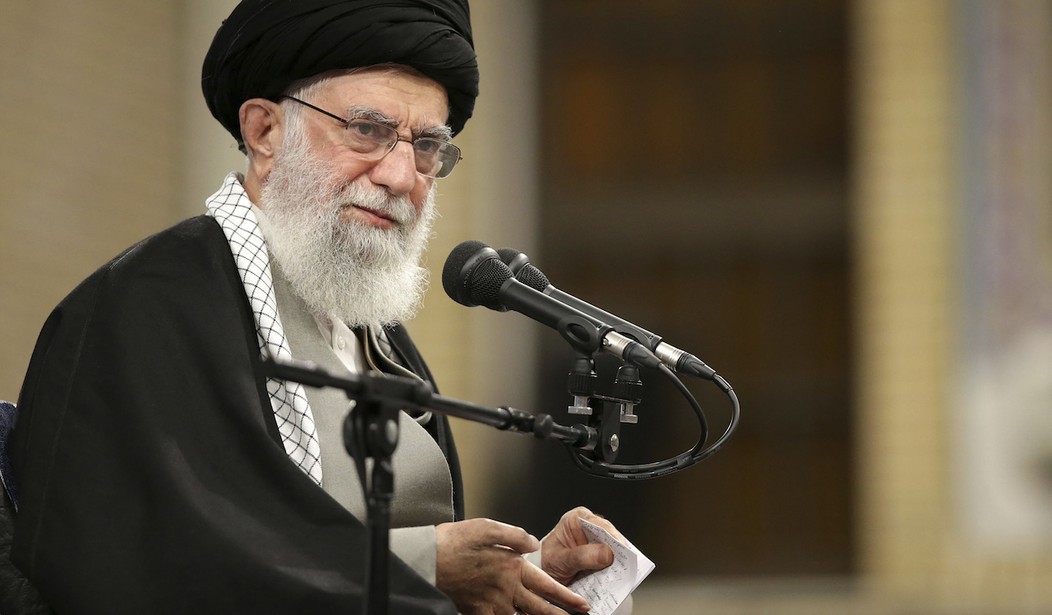Today marks Human Rights Day, the anniversary of the adoption of the Universal Declaration of Human Rights by the United Nations General Assembly in 1948. On this year's Human Rights Day, the UN needs to pay particular attention to the systematic and ongoing abuses in Iran.
A group of UN experts recently called the 1988 massacre of political prisoners in Iran a "crime against humanity." Citing the UN and the Security Council’s failure to address this crime at the time, they also called for an "in-depth" and "independent" investigation into the matter. This push for accountability should be welcomed by the international community.
Amnesty International said, "Top UN human rights experts have now sent an unequivocal, and long overdue, message: the ongoing crimes of mass enforced disappearances resulting from the secret extrajudicial executions of 1988 can no longer go unaddressed and unpunished." The 1988 massacre resulted in the killing of nearly 30,000 political prisoners.
The Iranian regime’s list of unresolved crimes has grown significantly in recent years and is all but certain to continue unless its crackdowns on dissent are interrupted by serious international pressure.
The regime's crackdown has been accelerating since early 2018 when a nationwide anti-government uprising broke out. The regime’s political violence hit a crescendo in November 2019, when the people staged a larger and more organized uprising, extending slogans like “death to the dictator” across an even broader geographic and demographic range.
Recommended
The November 2019 protests immediately flared up across nearly 200 cities and towns but were viciously put down. On the orders of the regime's supreme leader Ali Khamenei, the Islamic Revolutionary Guard Corps (IRGC) opened fire on crowds and launched a killing spree.
The main opposition, the National Council of Resistance of Iran (NCRI), was quick to report on the scope and severity of that crackdown. Their analysis of hospital and morgue records, plus testimony from direct eyewitnesses, helped to establish that 1,500 peaceful protesters were killed during the second uprising. Thousands more were arrested and severely tortured, according to Amnesty International.
The human rights situation in Iran has worsened with the outbreak of the coronavirus pandemic. Iran’s situation is the worst in the Middle East. According to the NCRI, the death toll is nearing 180,000.
Cramped and unsanitary conditions have made prisons into breeding grounds for the spread of various infections, not just Covid-19. There are even signs that Tehran is using outbreaks as a means of exerting additional pressure on political prisoners.
As just one example, it was reported last month that Gholamreza Abanlu developed Covid-19 symptoms several months after being arrested for allegedly supporting the NCRI’s main constituent group, the Mujahedin-e Khalq. Despite this, he was returned to Ward 4 of the notorious Evin Prison after being referred for testing and was kept there among other political prisoners beyond the point when his test results came back positive. Abanlu received no treatment during his brief transfer, and his story is fairly typical of the experiences reported by others who have had close encounters with Covid-19 infections in Iranian prisons.
As with the regime’s crackdown on dissent, it remains to be seen whether Human Rights Day will be enough to prompt Western governments or the United Nations to take more serious actions to address those issues.
If the international community had taken action in response to the 1988 massacre, or the crackdowns on the January 2018 uprising, the regime’s political violence might not have escalated to the point at which 1,500 people were killed over just several days in November 2019.
If the international community had properly acknowledged Tehran’s deliberate mismanagement of coronavirus outbreaks at the beginning of this year, the regime might have been compelled to take steps toward safeguarding its civilian population rather than weaponizing Covid-19 against political prisoners.
Human Rights Day should encourage everyone to learn from history and be ready to meet similar situations in the future.
The Iranian people want the regime overthrown and Tehran's officials are warning that a much bigger uprising is on the horizon. Knowing this, those officials are sure to make the human rights situation even worse unless international pressure forces them to do otherwise.
Not only should the United Nations act to prevent further human rights catastrophes in Iran, but it should also hold the regime accountable for its past crimes by referring the regime's human rights dossier to the UN Security Council for further deliberation and action.
The UN experts that recently highlighted Tehran's 1988 massacre stated that if the Iranian regime “continues to refuse to uphold its obligations under international human rights law,” they “will call on the international community to take action to investigate the cases including through the establishment of an international investigation.” That is the first necessary step for holding the regime accountable for its horrendous crimes against humanity.

























Join the conversation as a VIP Member